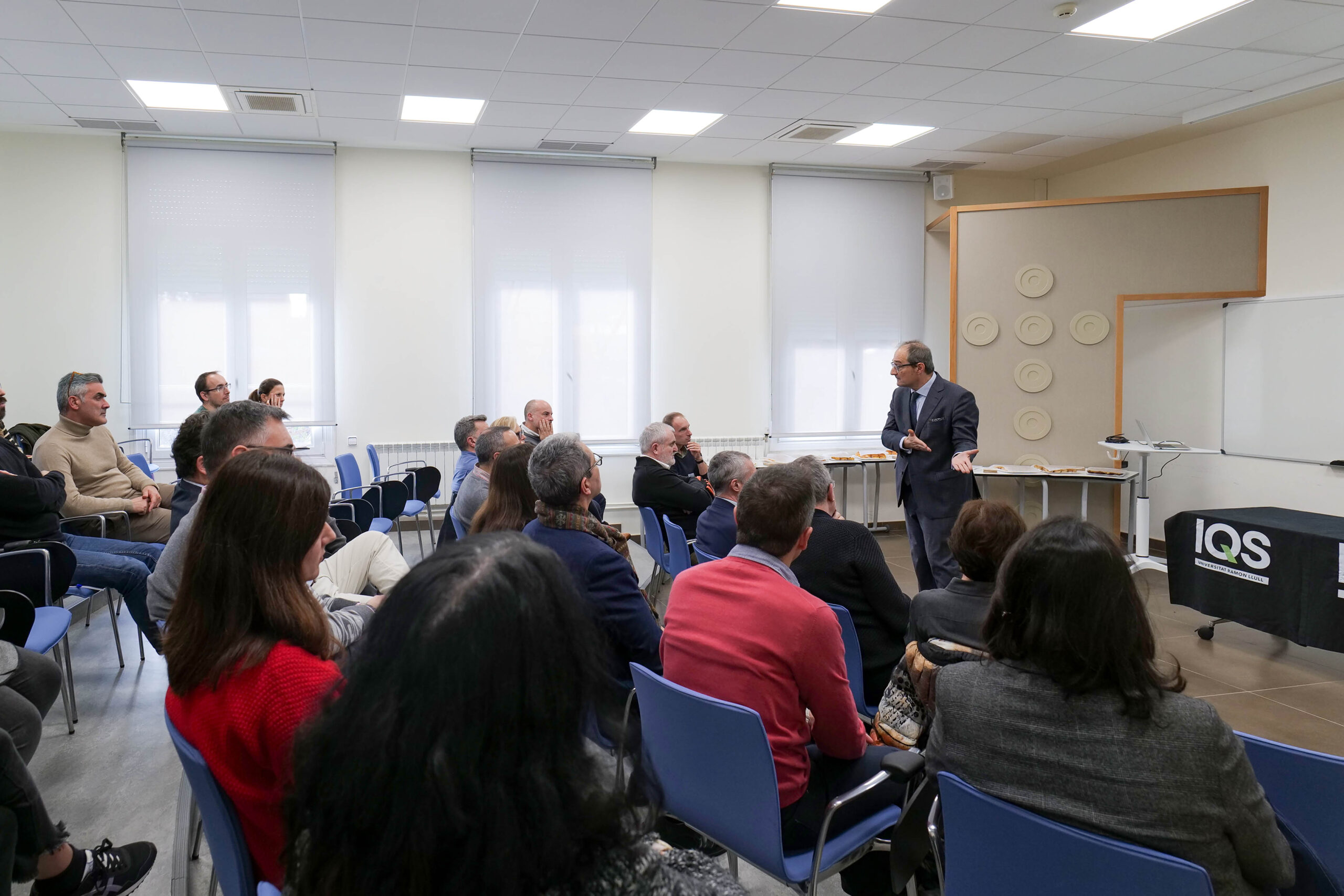On 13 December, Dr Josep Antoni Rom, rector of Ramon Llull University (URL), presented the conference entitled Christian Humanism at the URL in the Age of Secularization to the IQS Community. This event was organized within a context of growing interest in clarifying how the URL’s institutions can make their inspiration from Christian humanism, the fundamental basis of the university’s educational project, more explicit and palpable.
The Rector of the URL Reflects on Christian Humanism in the Age of Secularization

In his speech, Dr Rom recalled that, according to the statutes of Ramon Llull University, the mission of the institution is to “promote a model of comprehensive education for individuals.” This concept, often present in academic discourse, refers to the integration of an ethical and social sensibility in the classroom based on Christian humanism. The rector stressed that this perspective goes beyond acquiring knowledge: “It means integrating the transcendent dimension and the search for truth,” he stated.
Dr Rom also referred to the words of Benedict XVI in Caritas in Veritate, where he said that “Integral human development presupposes the responsible freedom of the individual and of peoples: no structure can guarantee this development over and above human responsibility.” In this sense, the rector highlighted the collective responsibility adopted by the URL’s institutions, from the administration’s work, oriented towards the horizon marked by our mission, to the individual performance of each member of the academic community in their day-to-day work.
At the same time, Dr Rom emphasized that the proposal of Christian humanism has a calling towards universality. “All of us who are at university, believers and non-believers alike, can embrace its principles based upon the gospel tradition. We are called to open ourselves to others and recognize them in their full dignity.” With Christian humanism, he recalled, “no one is a stranger or unknown to me, I am called to recognize everyone.”
General objectives to make Christian humanism tangible
Dr Rom proposed four general objectives to give shape and meaning to this humanist inspiration:
Promoting the identity of the institutions: The rector suggested that perhaps it could be necessary to be more explicit when communicating this identity, both internally and externally.
Planning a comprehensive humanist model: This implies not only introducing subjects in ethics, anthropology, or critical thinking, but also integrating the humanist perspective into the design of curricula, research, and university life in general.
Training and community initiatives: Events such as the conference on 13 December are an example and a path towards deepening this reflection.
A proactive attitude in the cultural debate and in spreading Christian humanism: The rector gave the example of initiatives such as the recently held Aporophobia Conference, which make a fundamental contribution to academic and social dialogue.
Concrete actions to move forward in this direction
Continuing with his position, Dr Rom proposed concrete actions to move forward in this direction. He highlighted the importance of the Christian humanist perspective influencing the subjects through a transversal and interdisciplinary perspective. He stressed how Christian culture and the social doctrine of the Church offer a rich basis for reflection in disciplines as diverse as economics, the social sciences, ecology, art, and psychology.
At the same time, he proposed creating spaces for shared materials and training designed to facilitate dialogue with non-Christian colleagues and people representing diverse cultures and beliefs. Dr Rom identified this exchange as a fundamental way to enrich the university community, emphasizing the importance of intercultural and interreligious dialogue.
Finally, he proposed the development of an interdisciplinary Christian thought laboratory, a space in which the different disciplines could add contributions to delve deeper into issues such as ethics, science, spirituality, social action, and culture. He indicated that this laboratory could become a meeting point for crafting new projects and initiatives aligned with the humanistic mission of the university.
The event ended with an open session in which participants were able to share their ideas and proposals, thus generating a space for collective reflection on how to make this model of comprehensive education a reality in the daily work of the university.









